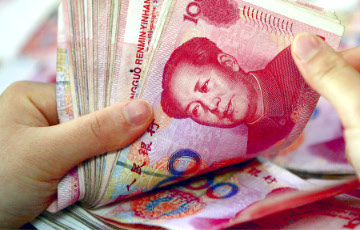China Blocks 80% Of Yuan Payments To Russia
2- 29.07.2024, 9:26
- 12,734

Unexpected blow.
The situation with Russian payments to China continues to deteriorate: Chinese banks began to return back to Russia about 80% of transfers in yuan, informed sources told Kommersant.
According to them, the Chinese side has been tightening the requirements "on an increasing basis" since December 2023. Then US President Joe Biden signed a decree allowing the US Treasury to impose secondary sanctions against credit institutions of third countries for cooperation with Russian-sanctioned companies and assistance to the defence industry.
After another tightening of sanctions in June, when the United States included all sanctioned persons, including Russian banks, in the definition of the military-industrial complex of the Russian Federation, transfers on the Chinese side began to hang for up to several weeks, after which they are often cancelled without explanation, says one of the interlocutors of Kommersant. As a result, according to him, the client suffers losses on the course and conversion. "Everyone will take the commission, but the payment will not be executed," the source said.
"In our experience, banks do not request anything: money simply hangs on correspondent accounts for 30–40 days and returns back," says Alexey Sapozhnikov, managing partner of the consulting company Sapozhnikov & Partners LLC.
According to him, sometimes the goods stay in Russia and the Chinese supplier cannot receive their money for five to six months. However, deliveries often continue on a postpaid basis, Sapozhnikov added.
Russian companies are increasingly having to resort to the services of intermediaries — payment agents or "trading home", says the founder of Sagrada Legal, Oleg Ushakov. "In the first case, agents are responsible only for payment services, in the second — we are talking about the fact that such houses are responsible not only for the transfer of payment, but also for the function of movement of goods," Ushakov explained.
At the moment, payment agents account for about 30% of payments, Kommersant's source in the market notes. The use of an intermediary entails an increase in the cost of the transaction, since customers need to pledge an additional fee. On average, it is 3–5%, but can reach 8–10%, depending on the complexity of the logistics chain and the amount of the transaction, Ushakov clarifies. At the same time, so that the transaction does not fall under the risks of compliance and is not sanctioned, it may be necessary not only to make a "neutral" payment, but also to actually import goods from China, first to a neutral jurisdiction, and then to Russia, the expert concluded.











